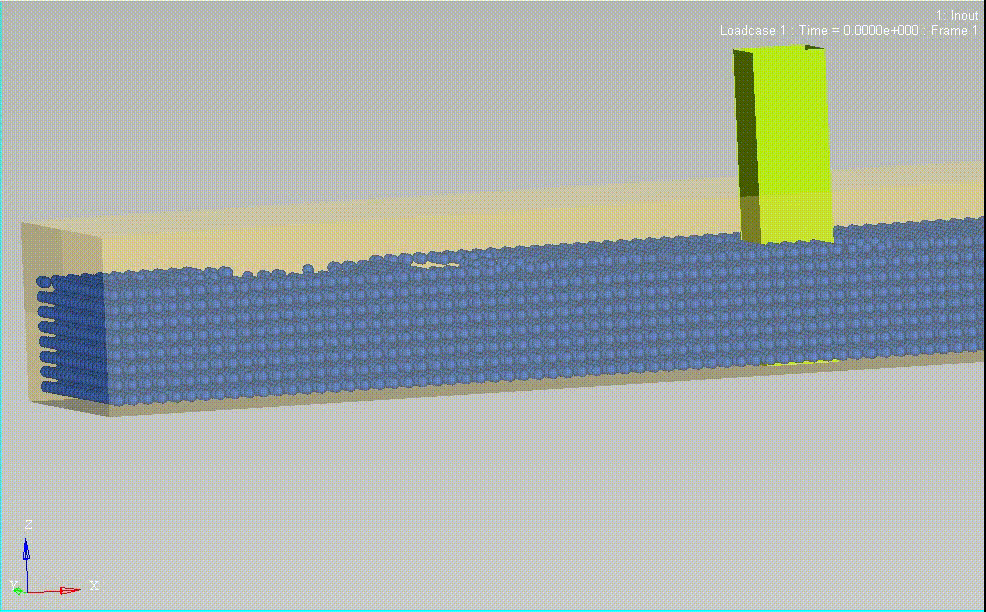Hi there,
I am trying SPH INOUT Collector for simulating water flow at a certain speed in a tank and a pole at middle of the tank.
My aim is to capture the vortex formation around the pole.
But first of all I'am unable to define properly the INOUT condition (SPH is moving away from the inlet boundary). A set of SHP Particles moving and collides with other (as shown below)
At outlet I defined atm. pressure function.
I am attaching the deck with the simulation HV video to represent my problem.
Kindly request to consider my problem and suggest some solution for it.
Thanking You.
rgrds,
Pritam